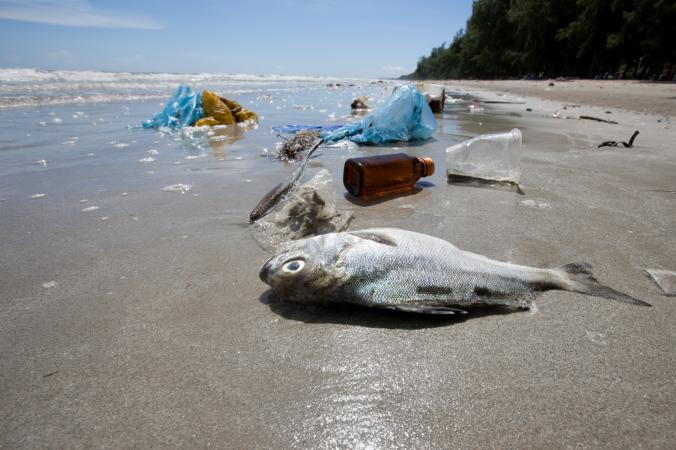Cleaning up our act in the oceans
Thought Starters
Thought Starters
This article was contributed by Cleaning up our act in the oceans.
It’s not easy to hear, but we need to acknowledge the harm plastic is doing to our sea life. It’s distressing to realise that aquatic animals often mistake plastic for food or accidentally ingest plastic waste.
This plastic can’t be digested so it stays in their stomach – taking up space and making them sick. In some case they might die of starvation because of the amount of plastic in their bodies that cannot be expelled naturally.
It’s also not a comfortable thought to imagine air-breathing aquatic animals who become entangled in plastic and cannot return to the surface for air. This terrible circumstance leads to strangulation and suffocation.
These are not pleasant thoughts at all! But when it comes to addressing the impact we’re having on living creatures, we need to act.

Sometimes data is hard to absorb. But seeing photos of plastic islands and footage of seabeds littered with non-degradable rubbish – those images can bring it home.
Imagine if our bike-paths were lined permanently with waste, or an island of plastic literally floated down your street. It would be an abomination! But when it comes to the ocean, it’s often ‘out of sight, out of mind’. Our level of ‘acceptable’ seems to change when it’s in a biome that humans don’t predominantly inhabit.
Who knows – they say that by 2050 our oceans could contain more plastic than fish! Whether this happens or not, it’s a clear indication that things are getting worse, not better.
But this can be changed. Let’s join together to eliminate the mess that’s choking our beautiful oceans.
Small changes raise awareness and habits.
Just like the saying ‘little drops of rain make a mighty ocean’, by making simple changes in the way we use plastic and manage our waste, we can create a mighty impact.
Over to you
What can we do in our daily lives to improve the global issue of plastics in our oceans? Please share your ideas.
The world of sustainability is always changing. The information we’ve provided is based on what was current when we published it. So, please make sure to check the latest standards and guidelines.
This is an article from a SustainabilityTracker.com Member. The views and opinions we express here don’t necessarily reflect our organisation.
This article was contributed by Cleaning up our act in the oceans.